When it comes to sherry wine and sherry vinegar, given that they contain similar ingredients, you may be wondering whether they are the same. The short answer is no, these two products are not the same, for a number of reasons.
In this article we will be talking you through what sherry wine and sherry wine vinegar are. In addition to this, we will be discussing both their differences and similarities.
What Is Sherry Wine?
Sherry is a type of fortified wine. It is created using white grapes, and it is specific to the Andalusia region in Spain. As it is fortified, this means that it has had a distilled spirit added to it.
This gives it a stronger percentage, and adds depth and flavor to the wine.

Some other types of fortified wines include Madeira, and Port- both of which are popular options. The main type of grape that is used to create sherry is the Palomino grape, and there are light and heavier versions of sherry available based on your individual preferences.
As this is a fortified wine, it is typically drunk in smaller quantities in comparison to typical white wine, due to the extra alcohol content. The overall consistency of sherry wine is thicker than your average wine due to the added spirit.

It is sweeter and richer than white wine, even the sweeter varieties, which does make it a popular drink choice. Even so, there is the option to purchase dry sherry too, if you are not fond of sweet wine.
What Is Sherry Vinegar?
Sherry wine vinegar is sometimes confused with sherry wine due to it containing sherry wine. However, sherry wine vinegar is not intended to be drunk. Rather it is an accompaniment to meals, in particular salads and chicken dishes.

This vinegar is made using sherry wine, which is one of its main ingredients. You may be familiar with it being called vinagre de Jerez, here in the US. Most types of sherry wine vinegar uses the Palomino grape to create its well known taste.
Sherry wine vinegar has a distinctive taste, and is full of flavor. It is great when added to soups and stews.
How Is Sherry Wine and Sherry Vinegar Different?
They are different because they are created for two different purposes. While you can drink sherry wine, or you can add it to flavor food, it is fuller, and richer in its taste.

When looking at sherry wine, it is created using sherry wine, but it also has a number of different ingredients too. Being a vinegar, it is quite acidic, which changes its overall taste, and does cause a person to somewhat limit how much they add to a meal.
Sherry wine vinegar is added to meals to provide flavor, much in the same way as balsamic vinegar is. It is not intended to be drunk like sherry wine is. It is a lot thinner in its consistency too, and is typically not as sweet, given the other ingredients added to make it vinegar.
Can you substitute sherry wine for sherry vinegar?
Yes, in theory, you can use sherry wine as a substitute for sherry vinegar. However, it may not provide you with the correct flavor and consistency you are looking to achieve. This is because sherry wine is sweeter and thicker than sherry wine vinegar.

However, if sherry wine is the only suitable substitute that you have, it is worth using this, as it is better than using no substitute at all. We would recommend using a smaller amount when using sherry wine as a substitute.
Instead, a better substitute for sherry wine vinegar would be another type of vinegar. This is because vinegar contains acid. The acidic taste is important when you are looking to replace vinegar.
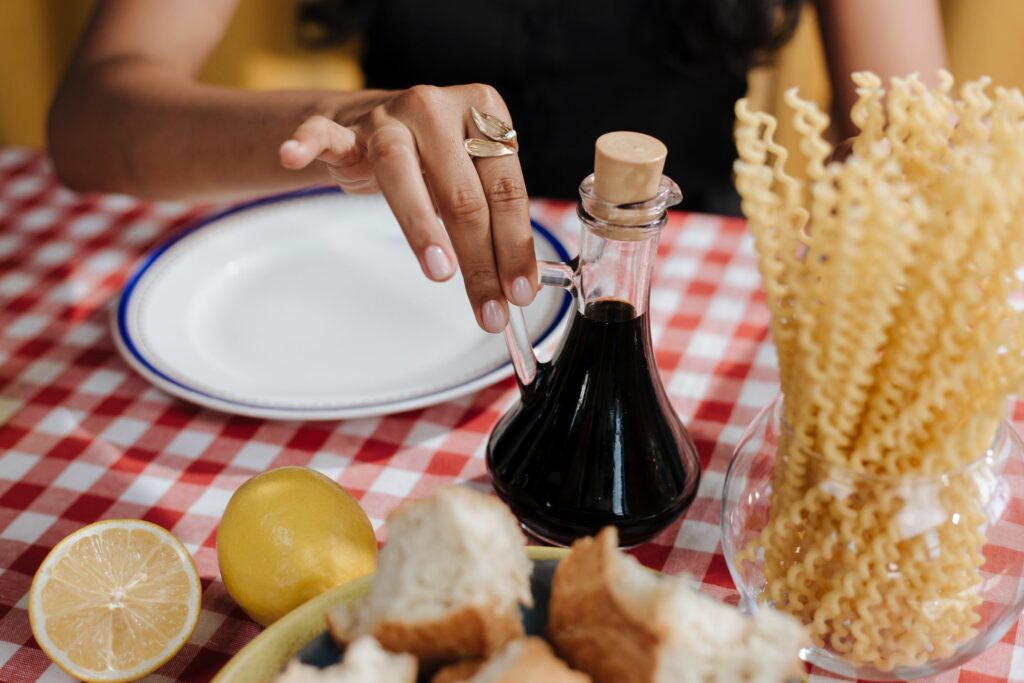
Given this, we would recommend using rice vinegar, this is the closest substitute to sherry wine vinegar. You could even combine a small amount of sherry wine with the rice vinegar to help replicate the taste as much as possible.
Another useful substitute is red wine vinegar. This has a similar taste, but it is stronger on the whole. Given this, we would recommend using a smaller amount of this wine as a substitute.
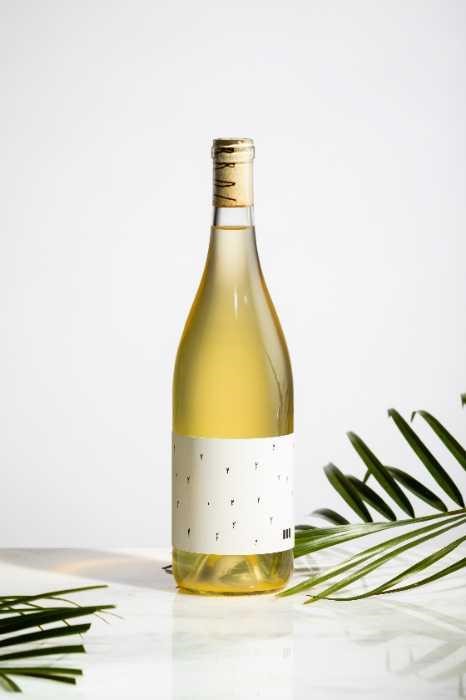
You can choose to use balsamic vinegar as a substitute, while it does taste different to sherry wine vinegar, it does have a similar consistency. In addition to this, it tends to be a popular vinegar that people will have in their pantry.
If you are using this vinegar as a substitute for sherry wine vinegar, there is no harm in adding a small amount of sherry wine to the recipe to help achieve the sherry flavor. If you are doing this, you will only want to add a small amount.
Is Sherry full of sugar?
Sherry is a type of wine that does contain a reasonable amount of sugar. When looking at a medium sherry, it can contain anywhere up to 115 grams of sugar. If you are purchasing a sweeter type of sherry, this can have even higher sugar levels. Dry sherry will likely have slightly lowered sugar levels on the whole.
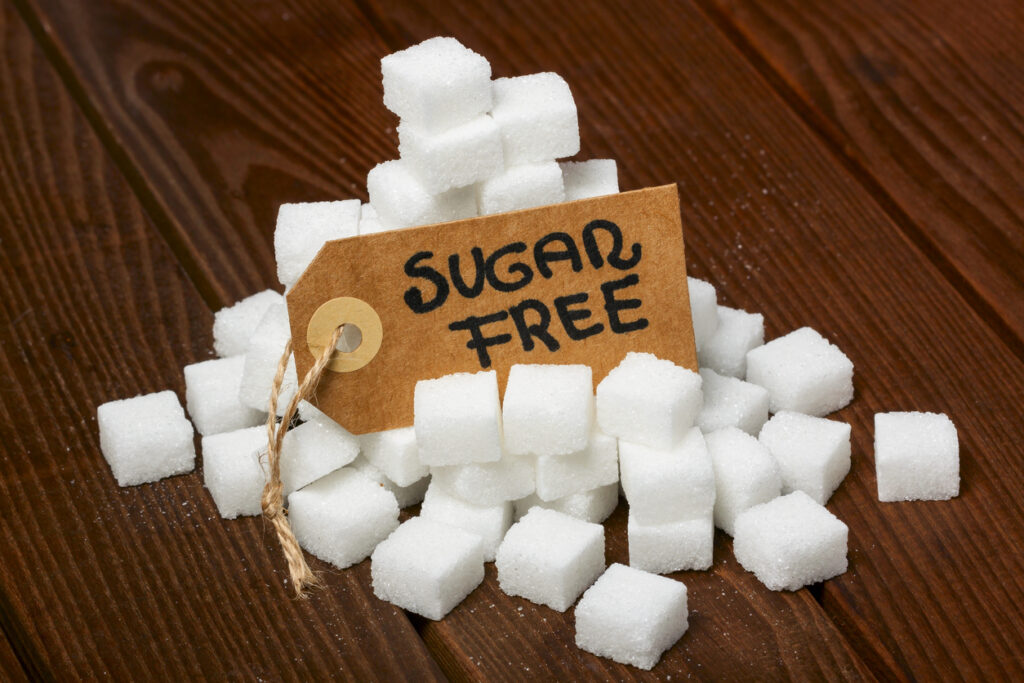
Sherry vinegar substitute
Sherry vinegar has become a popular ingredient in kitchens all around the world. Not only does it add a unique, tangy flavor to recipes, but its health benefits are also noteworthy. Unfortunately, finding sherry vinegar can be difficult or even impossible depending on where you live. But don’t worry! There are several great alternatives that offer similar flavors and health benefits.
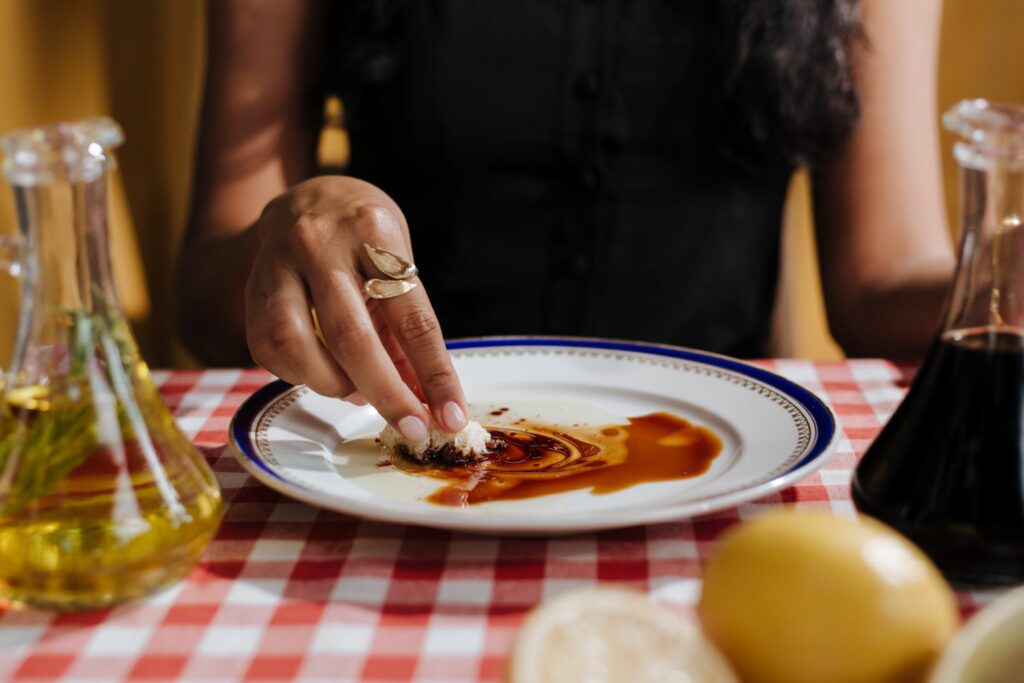
The most common substitute for sherry vinegar is red wine vinegar. It is made from fermented red wine and offers similar acidity levels as sherry vinegar. Another option is balsamic vinegar, which has a sweet flavor with notes of molasses that pairs well in many recipes alongside the tanginess of the sherry vinegar substitute.
Red wine vinegar vs sherry
Red wine vinegar and sherry are two very different types of vinegars that can be used in a variety of recipes. While they both share many similarities, the taste and composition of the two products differ significantly.
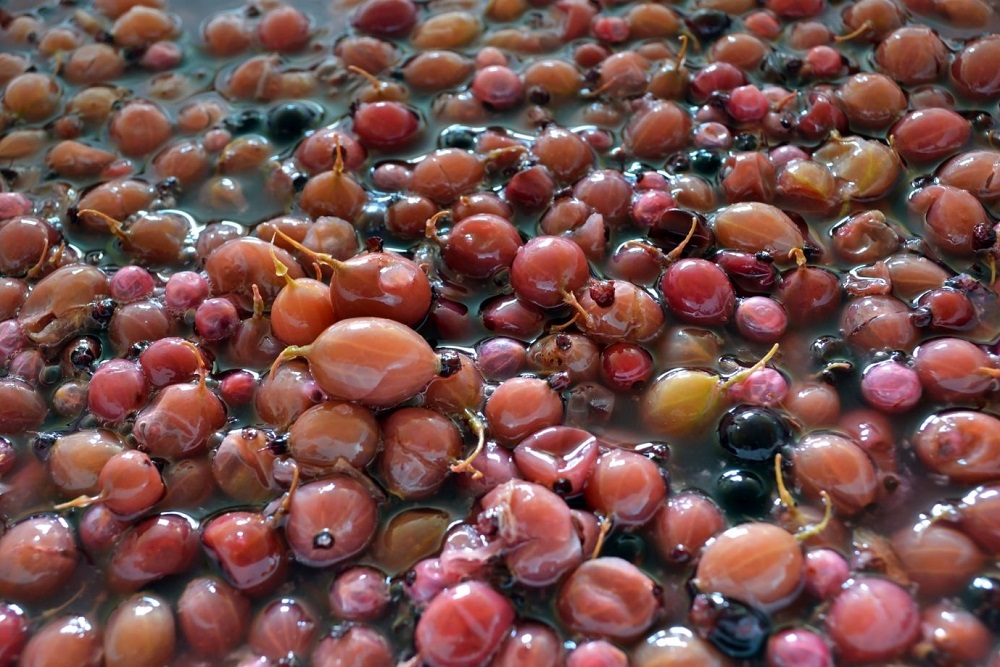
Red wine vinegar is made by fermenting red wine until it becomes an acidic liquid. This vinegar contains all the natural flavors found in red wines such as oak, berries, and spices. It is commonly used in salad dressings and marinades due to its strong flavor profile. Red wine vinegar also contains health benefits such as antioxidants which can reduce inflammation and help protect against certain diseases.
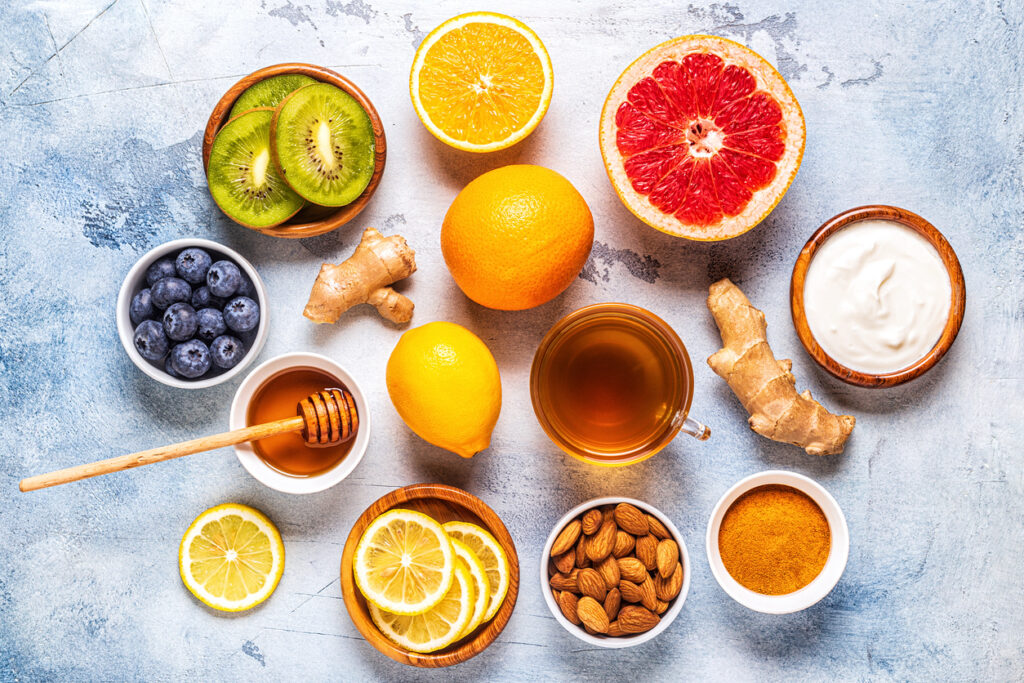
Sherry vinegar is made from sherry wines that are aged for up to six years in oak barrels before becoming a vinegary liquid. Its flavor profile consists of sweet notes from the sherry adding complexity to any dish it is added to.
Champagne vinegar
Champagne vinegar, also known as champagne wine vinegar, is a type of vinegar that has a mild, fruity flavor and light golden hue. It is made from the same grapes used to make champagne wine. People who are looking for an alternative to traditional balsamic vinegars often turn to this unique condiment. Champagne vinegar can be used in all types of foods—from salads and dressings to marinades and sauces—and it adds a unique flavor that can’t be found with any other type of vinegar.

This versatile condiment pairs well with many different ingredients, including olive oil, garlic, herbs, fruit juices and spices. The balanced acidity makes it ideal for use in vinaigrettes or mayonnaise-based dressings like Thousand Island or tartar sauce.
White wine vinegar
White wine vinegar is a popular ingredient in many different dishes. Its slightly acidic and sharp flavour adds variety to salads, sauces and marinades. It can also be used as an alternative to balsamico bianco, which is a traditional Italian white vinegar made from Trebbiano grapes.
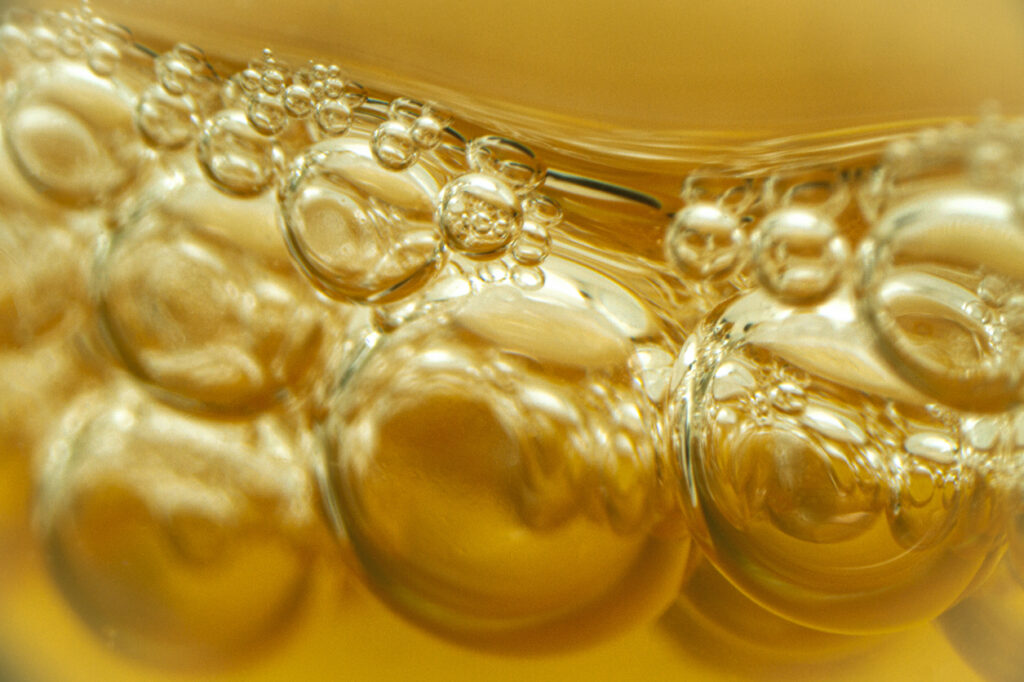
White wine vinegar is made by allowing white wine to ferment until it becomes acetic acid. This process of fermentation takes several weeks and results in a tangy, sour liquid with a slight fruity aroma. The taste of the vinegar can vary depending on the variety of grapes used – varieties such as chardonnay or sauvignon blanc can create more intense flavour profiles than other types of white wine.
Apple cider vinegar
Apple cider vinegar has been used for centuries to treat a variety of ailments and is still widely popular today. It’s made from fermented apples and is believed to have many health benefits including aiding in digestion, promoting better sleep, and helping to regulate blood sugar levels. Studies have also shown that apple cider vinegar may help with weight loss, reduce inflammation in the body, and even improve skin health.
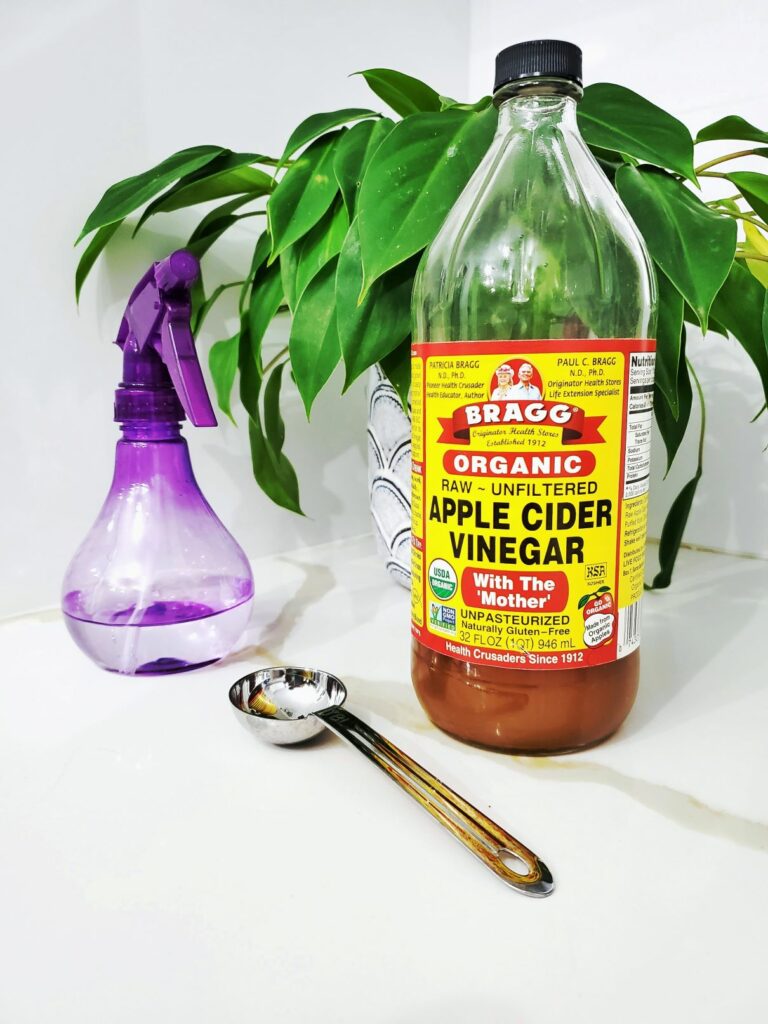
Apple cider vinegar can be enjoyed both internally or topically as part of a skincare routine. Drinking it diluted with water can act as a natural detoxifying agent; it can also be added to salad dressings for an extra flavor boost. When applied topically, apple cider vinegar has antibacterial properties which make it great for cleansing the skin or treating acne-prone areas.
Lemon juice
Lemon juice is a versatile ingredient with many uses in the kitchen. It has a tart, tangy flavor that pairs well with savory dishes as well as sweet desserts. Whether you’re looking for an alternative to vinegar or need a splash of flavor in your vinaigrette, lemon juice can be incorporated into countless recipes.

Not only is lemon juice great for cooking, but it also packs numerous health benefits. Lemons are rich in Vitamin C and antioxidants which help maintain healthy skin and immune system. Lemon juice can also aid digestion, reduce inflammation and support weight loss efforts when consumed on a regular basis. Its cleansing properties make it an excellent addition to detox diets or smoothies that help rid the body of toxins naturally.
Summary
We hope that you have found this article informative. As you can see, sherry wine and sherry vinegar are two separate things. While there is sherry wine in sherry vinegar, there are other ingredients and acid added to it to make it a vinegar.
Given this, you cannot replace sherry wine for sherry vinegar. However, as sherry wine is used to make sherry vinegar, you can use the wine to replace the vinegar in a recipe if needed.
While the sherry wine will not be the best substitute, it will help to provide the flavor you are looking for. While other types of vinegar are the better substitute options on the whole, you can choose to add a small amount of sherry wine in addition to these to achieve the flavor.

